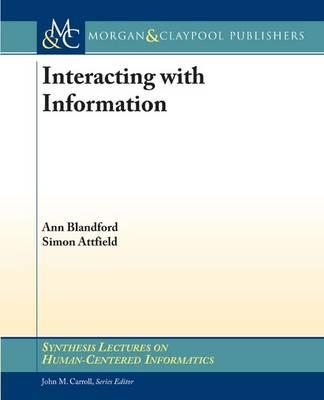We live in an ""information age,"" but information is only useful when it is interpreted by people and applied in the context of their goals and activities. The volume of information to which people have access is growing at an incredible rate, vastly outstripping people's ability to assimilate and manage it. In order to design technologies that better support information work, it is necessary to better understand the details of that work. In this lecture, we review the situations (physical, social and temporal) in which people interact with information. We also discuss how people interact with information in terms of an ""information journey,"" in which people, iteratively, do the following: recognise a need for information, find information, interpret and evaluate that information in the context of their goals, and use the interpretation to support their broader activities. People's information needs may be explicit and clearly articulated but, conversely, may be tacit, exploratory and evolving. Widely used tools supporting information access, such as searching on the Web and in digital libraries, support clearly defined information requirements well, but they provide limited support for other information needs. Most other stages of the information journey are poorly supported at present. Novel design solutions are unlikely to be purely digital, but to exploit the rich variety of information resources, digital, physical and social, that are available. Theories of information interaction and sensemaking can highlight new design possibilities that augment human capabilities. We review relevant theories and findings for understanding information behaviours, and we review methods for evaluating information working tools, to both assess existing tools and identify requirements for the future.












